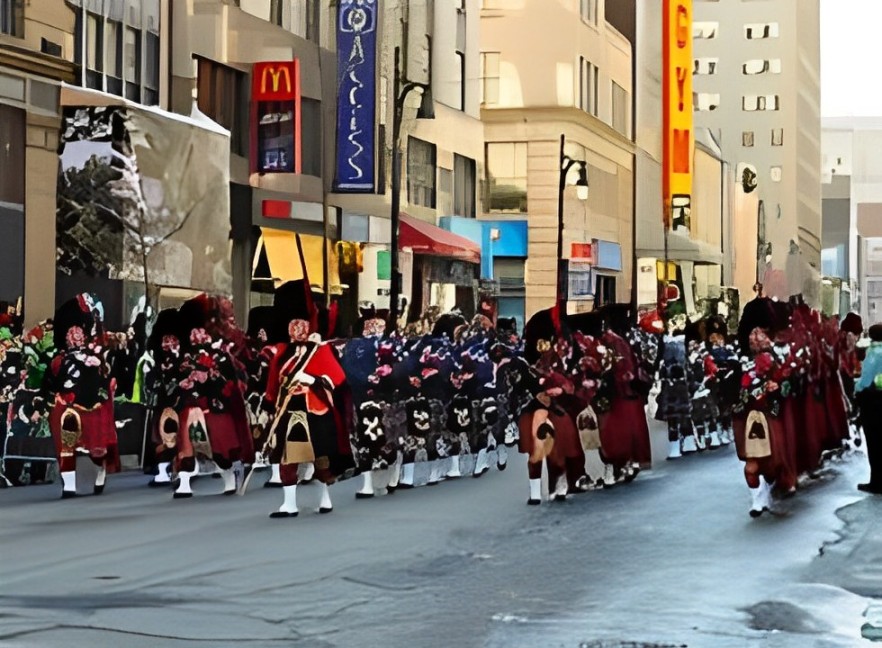July 1st marks Canada Day, a celebration of the nation’s confederation in 1867. While it is a day of festivities and national pride, it also serves as a reminder to reflect on the complex history of Canada, particularly concerning its Indigenous peoples. This reflection is crucial for understanding the impact of colonialism and the ongoing journey toward truth and reconciliation. The History of Canada and Its Indigenous People Before European settlers arrived, Canada was home to diverse Indigenous nations, each with its distinct languages, cultures, and governance systems. These communities thrived for thousands of years, developing rich traditions and deep connections to the land. The arrival of European settlers in the late 15th and early 16th centuries marked the beginning of significant upheaval for Indigenous peoples. Colonization brought with it the imposition of foreign governance, religion, and economic practices, often disregarding and undermining Indigenous ways of life. Treaties were made, and frequently broken, leading to the loss of land, culture, and autonomy for many Indigenous communities. The impact of colonialism is profound, manifesting in various forms such as the residential school system, which sought to assimilate Indigenous children by removing them from their families and communities. This legacy has had lasting effects on Indigenous peoples, contributing to intergenerational trauma and socio-economic disparities. Recognizing the Importance of Indigenous People While Canada Day is an opportunity to celebrate the country’s achievements, it is equally important to acknowledge the resilience and contributions of Indigenous peoples. Recognizing the truths of history is essential in honoring their rights and fostering a deeper understanding of Canada’s diverse cultural landscape. The Importance for Newcomers For newcomers to Canada, learning about the country’s history, particularly the experiences of Indigenous peoples, is vital. This knowledge fosters respect, understanding, and integration into Canadian society. Awareness of Indigenous history and contributions enriches the cultural tapestry of Canada and supports the broader goal of reconciliation. Understanding this history also helps newcomers appreciate the unique relationship between Canada and its Indigenous peoples, encouraging meaningful engagement in the community and a commitment to social justice. Commitment to Truth and Reconciliation Canada is committed to addressing the harms of the past through the Truth and Reconciliation Commission’s Calls to Action. This includes efforts to preserve Indigenous languages, culture, and traditions, as well as addressing social inequalities. At Worldbridge Immigration Services, we are dedicated to supporting these Calls to Action. We strive to educate newcomers about the importance of truth and reconciliation, fostering a deeper understanding of Canada’s history. Our commitment extends to making Canada home for those seeking to come or those who wish to stay permanently, ensuring they are welcomed into a nation that values diversity, respect, and inclusivity. As Canadians celebrate on July 1st, it is essential to balance celebration with reflection. Acknowledging the history and contributions of Indigenous peoples, while recognizing the impact of colonialism, is crucial in moving toward a future marked by understanding, respect, and reconciliation. Through education and awareness, all Canadians, including newcomers, can contribute to building a nation that honors its diverse heritage and upholds the rights and dignity of its Indigenous peoples. At Worldbridge Immigration Services, we are proud to be part of this journey, committed to making Canada a welcoming home for all. Let Worldbridge Immigration Services be your guide to a successful future in Canada Contact us: Website: www.theworldbridge.ca Email: info@theworldbridge.ca Phone/WhatsApp: +1-416-727-7766 Social Media: @worldbridgeHQ
Canadian Culture and Traditions
Canada is renowned for its pristine landscapes, especially its vast mountain ranges, rich history, and diverse blend of people and cultures. As the second largest country in the world, Canada extends from the United States in the south to the Arctic Circle in the north. Comprising ten provinces and three territories, the capital city is Ottawa, with other major cities like Vancouver, Toronto, and the French-speaking Quebec and Montreal also widely recognized. Bilingual Nation and Regional Diversity Canada is officially bilingual, with English and French serving as the two official languages. Despite this, most people speak English at home. Common Canadian slang includes “loonie” (a dollar coin), “chinook” (a warm wind that comes over the mountain in midwinter), and “hogtown” (a nickname for Toronto). The diversity of Canada, both historically and ethnically, means there is no single national culture. Unlike the melting pot ideal of the neighboring United States, Canada can be seen as a stew, with distinctive flavors from the many influences that make up its larger culture. The culture of an area typically reflects the dominant language, with French influences mainly in Quebec and New Brunswick. Canada’s aboriginal peoples maintain their distinctive cultures, especially in the north. Immigrants integrate into Canadian daily life while retaining unique elements of their ancestral homelands. Despite these differences, Canada unites to celebrate Canada Day on July 1st, marking the formation of the country in 1867. Festivals and Cultural Attractions As a multicultural country, Canada hosts numerous exciting festivals and cultural attractions throughout the year. Newcomers can find information about local activities through newspapers, online research, radio, neighbors, and community centers. Canadians are generally polite, tolerant, and relatively informal, though customs and etiquette can vary significantly across regions. In Quebec, for example, French influence means people often greet each other by kissing on the cheeks rather than shaking hands. Politeness is crucial, and table manners are fairly informal. If invited to someone’s home for a meal, it is polite to bring a small gift, such as wine or chocolates. Religious Freedom and Multiculturalism Canada practices a wide range of religions, with Christianity being the most prevalent, accounting for around 65% of the population. Atheism has been increasing steadily, with about 24% of Canadians now stating no religious affiliation. Freedom of religion is a constitutionally protected right. Canada’s commitment to multiculturalism began in earnest in 1971 when it became the first country to adopt multiculturalism as an official policy. This policy affirms people’s rights to maintain their unique cultural identities while promoting cross-cultural understanding and harmony. Natural Wonders and Festivals Canada boasts vibrant cities and wonderful man-made attractions, but it is the natural wonders that truly set it apart. From cascading waterfalls to the dancing lights of the aurora borealis, Canada’s natural attractions are breathtaking. The country is home to some of the biggest carnivals celebrating traditions and life, making it a must for travelers to experience at least some of these vibrant festivals. Relocating to Canada Canada’s welcoming attitude towards immigrants has made it an increasingly popular destination for relocation. Prospective immigrants should note that the cost of living in Canada is higher than in many other parts of the world. Property prices in major urban centers like Vancouver and Toronto are among the highest in the Western world. Groceries, petrol, and alcohol are also relatively expensive due to heavy reliance on imports and high taxes. Immigrants must follow the correct legal process to reside in Canada. This process can be time-consuming, often taking six months between completing the application and receiving a response. Canada’s rich cultural diversity, natural beauty, and inclusive policies make it a unique and welcoming place to visit or live. Whether you are exploring its majestic landscapes, participating in vibrant festivals, or considering relocation, Canada offers a blend of tradition and modernity that is both distinctive and inviting. Let Worldbridge Immigration Services be your guide to a successful future in Canada Contact us: Website: www.theworldbridge.ca Email: info@theworldbridge.ca Phone/WhatsApp: +1-416-727-7766 Social Media: @worldbridgeHQ




